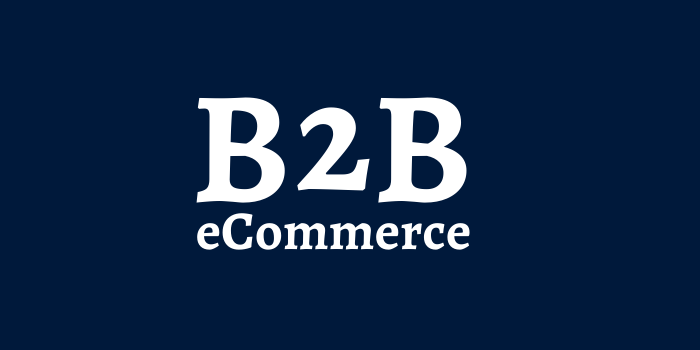B2B eCommerce is internet-based commerce, in other words, the act of selling goods and services over the internet exclusively to businesses.
While it may not be apparent to many, there are many differences between a B2B eCommerce store and a typical B2C eCommerce website many of us shop on.
The key difference between B2B and B2C is “who” you are selling to, and B2B tends to be more complex in that regard. That’s because businesses are complex by nature: they all have unique needs, decision-making processes, buying cycles, and even brand loyalties. B2B eCommerce platforms must accommodate these requirements B2B customers have.
Depending on what your product line consists of, your business needs and your budget, there can be many B2B-specific features you may want. Here are some of the more standard features B2B eCommerce platforms must have.
- Mobile front-end and back-end interfaces that allow customers and back-end agents to keep tabs of their accounts on mobile devices.
- Role-based product catalogues, web catalogues, tiered and custom pricing structures.
- Order management features such as modifications and payment channels.
- Inventory management features such as tracking, procurement and order fulfilment.
- Workflows for the buyer, seller processes, and custom checkout experiences.
- Integration with other systems such as ERP (Enterprise Resource Planning), product information management and CRM systems to centralize product and customer data.
How to Choose the Best B2B eCommerce Platform
There are many things that might impact your decision on a B2B eCommerce platform. Here are some of the features you should pay attention to. Use this list to decide if they are crucial to operations or are simply nice-to-haves:
- Open-source vs proprietary
- SaaS vs on-premise
- Mobile functionality
- Multiple sites and self-service portals
- Custom, tiered and dynamic pricing options
- Online quotes, negotiations and bargaining
- Multiple payment and shipping options
- Security features such as PCI
- Purchase, communication and activity history
- Workflows for cross-sells and upsells
- eCommerce search engine and page SEO visibility
- High level of scalability and add-ons
- Integration, add-ons, and plugins
- Reporting options
Conclusion
No matter what B2B eCommerce solution you choose, ultimately, your aim is to generate a positive return on investment. In doing so, the features of your chosen B2B eCommerce platform should carefully match your infrastructure, processes, and goals.
Just like any investment in the long-term success of your business, the best platform should be above all, a great fit for everyone who comes in contact with it: From your staff, suppliers, distributors, manufacturers, to perhaps most importantly, your customers.
